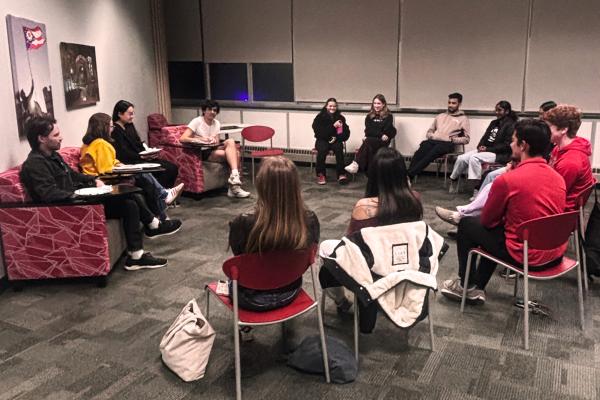CEHV's Donuts and Dialogue Program Continues to Thrive

In March of 2023, CEHV held our first dorm building dialogue. Our experiments with framing and structure over the ensuing semesters, in collaboration with Rebecca Kapusta from Housing and Residence Education, produced the Donuts and Dialogue program that thrives today. In this program, undergraduate students meet every other week in Morrill Tower to eat donuts and participate in dialogues about the genuinely challenging questions that emerge within the context of living in dorms.
Students are motivated to attend for a variety of reasons: feelings of frustration at roommates or suitemates, the desire to learn new techniques for navigating conflicts, an interest in sharing effective strategies with their peers, and curiosity about university resources (a small minority may also be motivated by donuts, but most students seem unaware that there will be donuts until we pass them out). Regardless of students' motivations for attending, what keeps them committed to the process of dialogue each session is its relevance to their lives and its high quality.
Since Donuts and Dialogues focuses on questions about living in dorms--for example, when should I confront my roommate about things that bother me and when should I simply move on?--relevance is easy to achieve. But achieving high-quality dialogues takes skilled facilitation grounded in CEHV's 4Cs Framework: Be Curious, Be Charitable, Be Conscientious, Be Constructive. The result is a dialogue protocol that begins with the pursuit of mutual understanding of one another's perspectives and then goes far beyond that. Our dialogues are not mere sharing sessions because the beliefs that constitute students' perspectives are subjected to rigorous scrutiny. And our dialogues are also not debates because this scrutiny is employed collaboratively in the mutual pursuit of better answers to meaningful questions.
